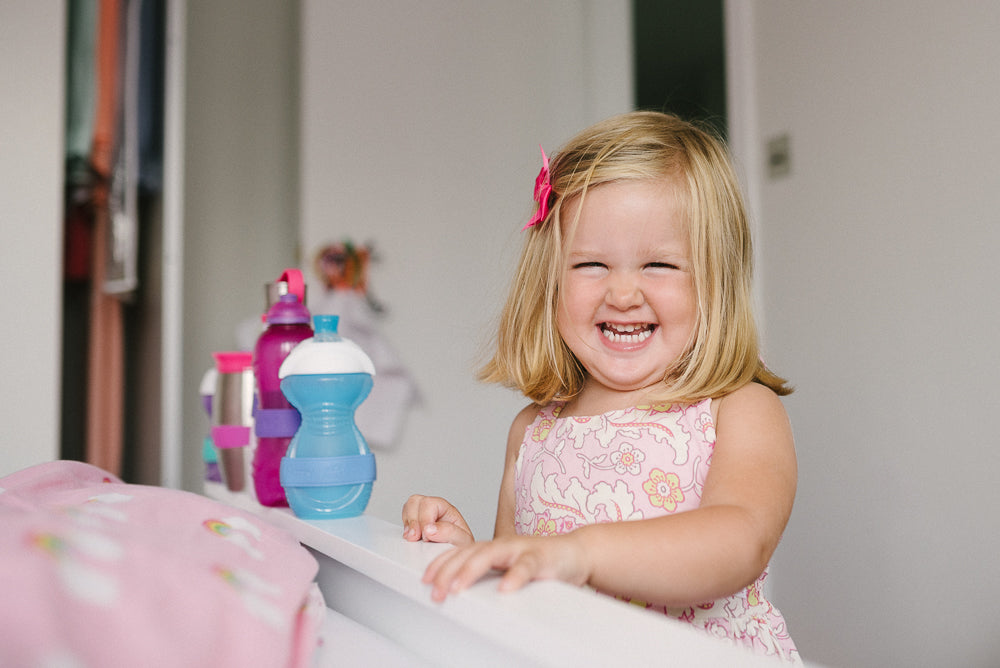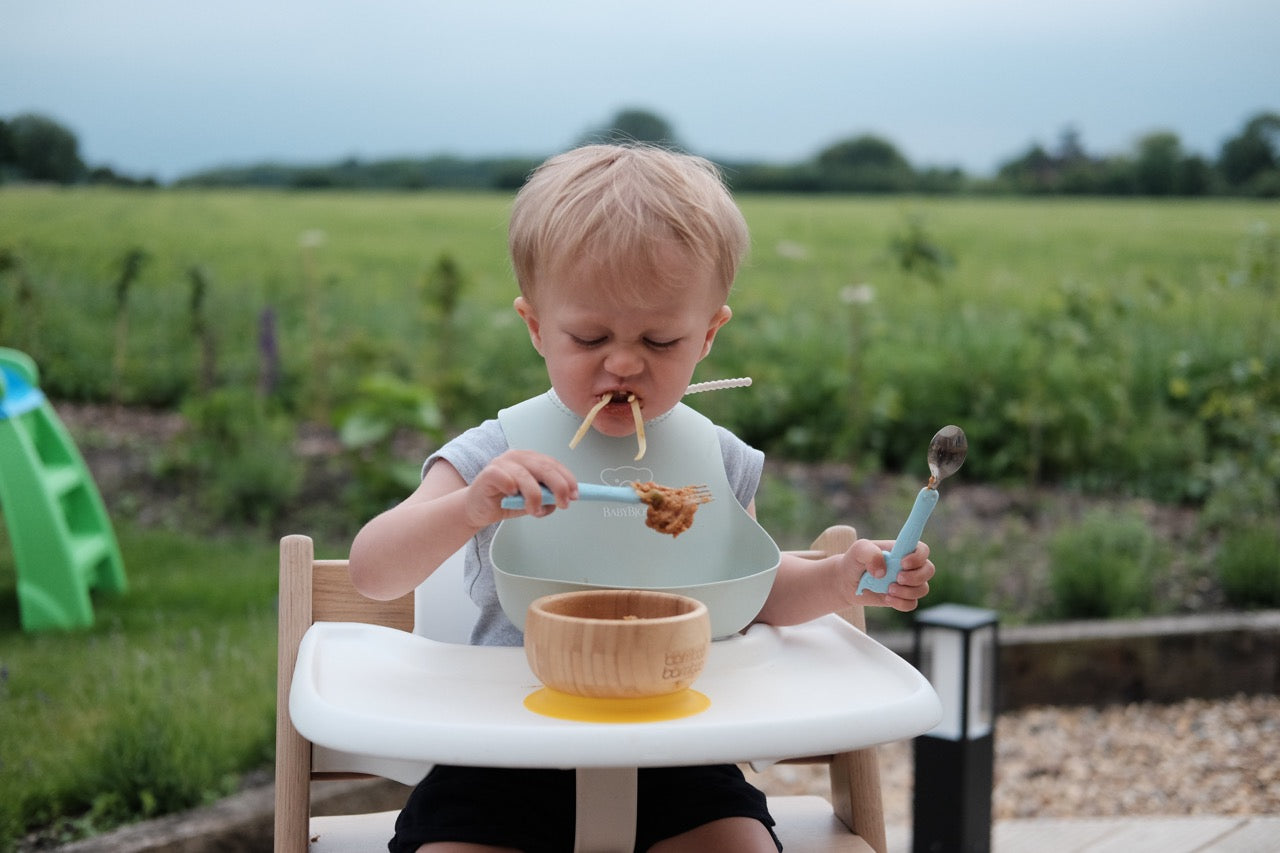Are your kids getting enough sleep? Does it really matter?
Getting enough sleep can be a big thing! Sleep can become quite a stressor. We’re obsessed with sleep right from the time a baby is born. It becomes a major topic of conversation – does your baby sleep through or not? How many times a night do they wake up?
As parents we really need our sleep too so if our children aren’t getting enough, it usually means that we aren’t sleeping well either. We all know how it feels if you haven’t had enough sleep and it’s the same for your kids, even though we expect them to do everything they would after a full night’s sleep!
As kids grow into toddlers and beyond, sleep can still be a big issue. Some kids just don’t seem to sleep so well while others have a solid 8-10 hours of blissful slumber. Sleep can change as children get older, so you might have a toddler who sleeps a lot but an older primary school age child who stays up late and can’t wake up in the morning! Teenagers’ sleep changes again – and they often seem to become nocturnal!
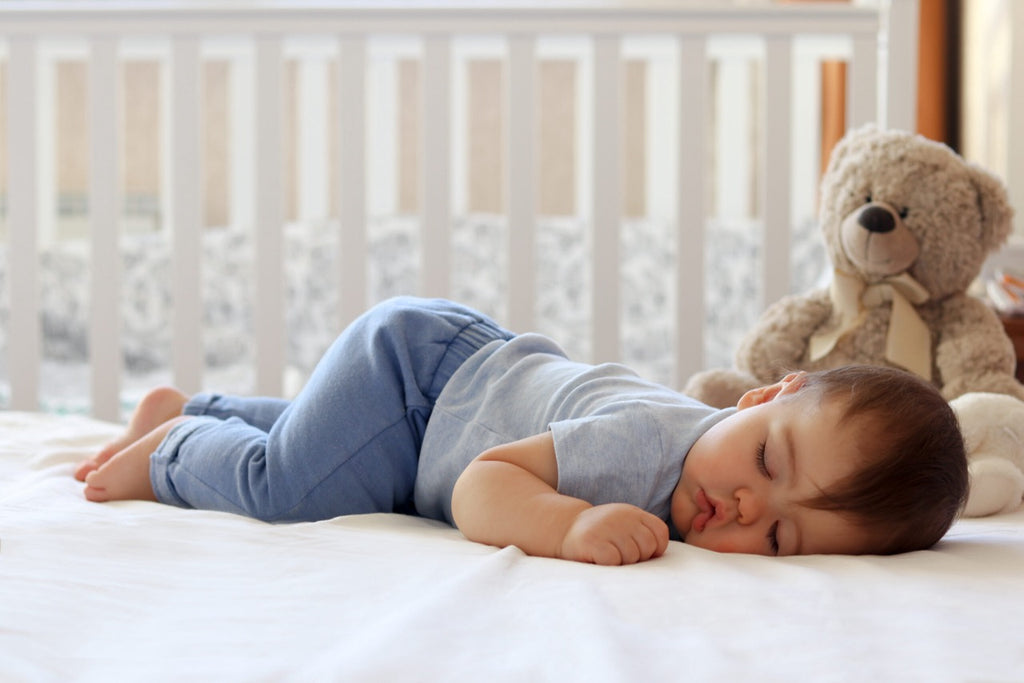
So why does getting enough sleep really matter?
What actually happens while we sleep?
Experts study sleep all the time using sleep laboratories – there is still a lot of mystery around sleep! It’s generally accepted that the body needs sleep to repair and restore cells and organs, and to allow muscles and the brain to rest.
There are different phases of sleep – called REM and non REM sleep. At first you fall into non REM sleep in which the body gradually falls into a deep sleep state, and all the body functions slow down. From this the body moves into REM sleep where, although the body stays still, the nervous system wakes and the blood pressure, temperature and breathing revert to almost daytime levels. This is the period of sleep that causes dreams! Non REM and REM sleep alternate several times a night.
The body needs both sorts of sleep and if it doesn’t get both it will try to make up for it the next night. Usually if you have one bad night’s sleep, the next night can often be a very good sleep – that’s the body trying to fill up the sleep levels again!
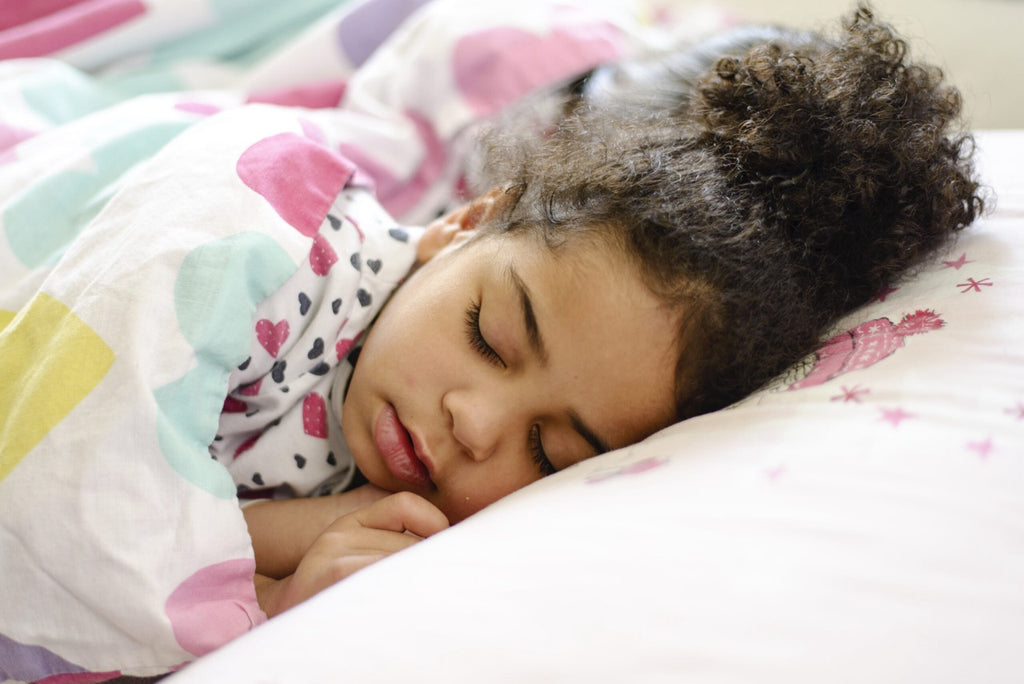
What happens when your child doesn’t get enough sleep?
Well, we all know how we feel if we don’t get enough sleep! It’s harder for kids to understand why they don’t feel at their best. Toddlers and babies get grumpy and cry a lot when they are tired, but they don’t know that’s why they feel bad!
School age children can really suffer too if they don’t get enough sleep. Their academic performance can dip and they won’t remember things they normally would. They might be distracted or stare into space a lot at school. They might not want to play at playtime, preferring to sit around resting. Sport too is affected and accidents are far more likely to happen if your child doesn’t get enough sleep!
Getting enough sleep is so important for your kids and for you!
How much sleep is recommended at different ages?
The NHS recommend:
Babies age 4-12 months need 12-16 hours, including naps.
Children age 1-2 years need 11-14 hours including naps.
Children age 3-5 years need 10-13 hours including naps.
Age 6-12 years – 9-12 hours.
Age 13-18 years – 8-10 hours.
Of course, sleep needs vary according to the child and also the season – you might find that kids need less sleep in the summer or just tend to sleep more in winter when they are warm and cosy in bed!
How about sleep problems?
Common sleep problems
Your child won’t go to bed!
Have a winding down routine in place – a warm bath, a milky drink, a bedtime story. It’s best to try and be consistent each night with the same routine so it becomes a habit. Try not to let your child have any screen time an hour or so before bed and don’t let them have screens in their room as this can interrupt the sleep routine.
Keep the room tidy and quiet with low light, night lights are good if they like some light to be left on in the room.
If your child gets up again, take them back to bed calmly.
It’’s a good idea to leave a drink of water within reach – with your child’s personalised bottle band on it for familiarity – so they can have a sip if they’re thirsty.
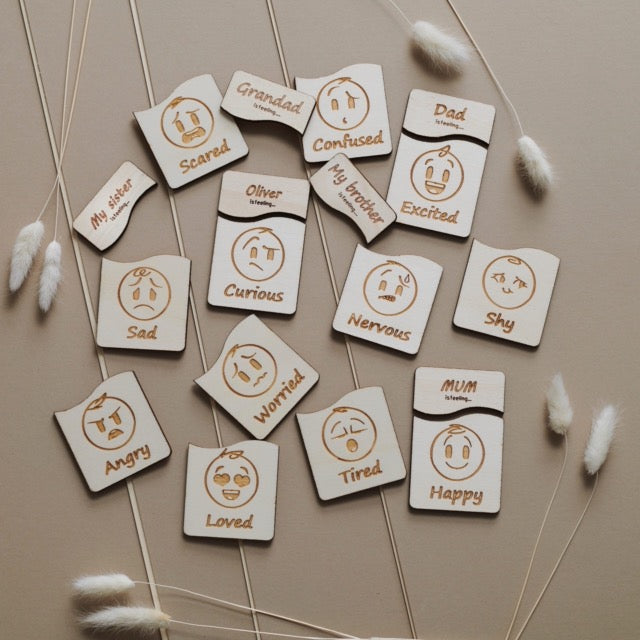
Your child won’t stay in bed!
This is a common one! If younger children get up it’s a good idea to take them right back up to bed with no fuss – if you let them stay with you then you could be giving them a reason to do it again! Kids are quick to recognise benefits and if they get attention when they come down then that’s a bonus point to them!
Your child won’t go to bed without you!
This can be a hard one to break, especially if your child has been used to sleeping with you.
Once your child is tucked up, make sure you give lots of cuddles, then move away. Return to give more cuddles until your child is really sleepy. If they get out of bed tell them that you’ll give them a big hug once they are back in bed. Continue this until your child falls asleep! It might take a lot of attempts but it works!
The key is that if your child does get up during the night, you need to make it as boring as possible so they have no incentive to keep getting up. Once they realise that getting up isn’t fun then hopefully they will stay in bed!
Nightmares and sleep walking
Some children suffer from nightmares and some even sleep walk – this is not uncommon. Sleep walking may be the result of pent up anxiety about something so it can help to talk to your child and find out if something is worrying them.
It’s always worth talking to your GP if your child suffers frequent nightmares, night terrors or is a sleep walker. They’ll be able to check your child over and give you good advice on how to deal with the problem.
If your child does want to talk about how they feel but can’t find the words, our Wooden Emotion Cards can help. Each card is marked with a different emotion face to give your child a visual aid they can use to help describe their feelings. We also have an additional set of Wooden Emotion Cards with detachable tops – one personalised for your child and the others for members of the family.

The importance of diet in getting enough sleep
Diet is also really important for getting enough sleep – if your child eats dinner early in the evening or even late afternoon, they might well need a snack before bed to ensure they aren’t hungry. Cereal with milk, a warm milk drink or some toast are good ideas.
Make sure your kids get a balanced diet generally with plenty of fruit and vegetables but also enough protein and carbohydrate. Carbs like pasta, potatoes and bread are needed as part of a balanced diet to ensure that your child has enough energy and feels satisfied and settled. A hungry child won’t sleep as well so good nutrition is key to getting enough sleep!
Avoiding sugary snacks especially towards bedtime is a really good idea as these can make energy levels fluctuate and disturb sleep. Make sure mealtimes are happy occasions where they have time to try and enjoy food – checkout our personalised kids’ cutlery to make mealtimes extra special!
Making bedtime a really cosy time is essential – new pyjamas, a duvet your child likes, a good bedtime story – all of these really help your child with getting enough sleep.
It can be hard on you as a parent because by bedtime you’re dying to have some time to yourself and long goodnights really aren’t top of your list! It doesn’t have to be a long routine though, just be consistent, calm and chilled.

If your child is constantly disturbing your sleep it can be really exhausting and cause you a lot of stress! Talk to your doctor or health visitor if you are having problems and they’ll be able to advise you.
Sleep problems are really common and sometimes having a little support from a professional can really help you deal with it. Don’t feel bad about needing help – it’s much better to reach out to someone with the skills to advise you than it is to struggle away alone.
Remember, PKS have Personalised Bottle Bands, Personalised toddler cutlery, Wooden Emotion Cards and more for your children. Have a look in our shop for kids’ birthday gifts or just for your own child – they’ll make your child happy and a happy child often sleeps well!




